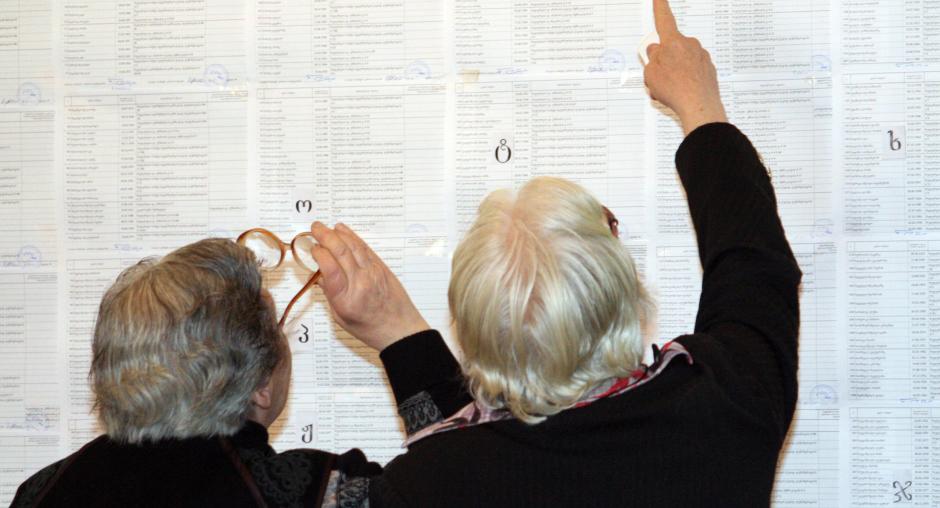Despite efforts to conduct Georgia's elections in line with standards, observers identify problems

TBILISI, 22 May 2008 - Political stakeholders in Georgia made efforts to conduct yesterday's parliamentary elections in line with international standards, but a number of problems were identified which made their implementation uneven and incomplete, the International Election Observation Mission said in a preliminary statement released today.
The observers noted that voters were offered a wide array of choices to select their representatives. The legal framework was generally conducive to the conduct of democratic elections, although remaining inconsistencies negatively affected its implementation. After failed talks, the government unilaterally changed the election system shortly before the elections in a manner seen by the opposition as favouring the ruling party.
Parties were able to campaign actively, but there were numerous allegations of intimidation, some of which could be verified. The distinction between state activities and the government party's campaign was often blurred. The media, in particular public TV, offered voters a diverse range of views. The election administration worked in a transparent manner, but election commissions and courts generally did not give due consideration to complaints.
Election day was overall calm and generally assessed positively, although problems with inking and instances of pressure on observers and proxies were noted. Counting and tabulation was evaluated less positively, with many significant procedural shortcomings observed.
"These elections were not perfect, but since I was here in January for the presidential election, concrete and substantial progress has been made. Problems and much work remain. I hope all political forces in this country will come together and continue to work to improve Georgia's democracy," said Joao Soares, Special Co-ordinator of the OSCE short-term observers and head of the OSCE Parliamentary Assembly delegation.
"The Georgian people expressed their political will in yesterday's elections. They did so in the hope of putting an end to a political conflict and the start of a new dialogue between all political forces in this country. Despite improvements to the election environment these elections did not make full use of the democratic potential of Georgia. All political forces should now commit themselves to constructive dialogue and compromise in order to address Georgia's many challenges, including the reform of its electoral framework," said Matyas Eorsi, head of the delegation of the Parliamentary Assembly of the Council of Europe.
"Having seen the strong engagement of civil society and especially of the young generation in this election, I call on all political parties not to miss this opportunity for opening up real dialogue with the civil society," said Marie Anne Isler Beguin, head of the European Parliament delegation.
"I have seen significant changes in Georgia, particularly in democratization and the electoral process, since I headed short-term observation missions in 1999, 2003 and 2004. This process has yet to be completed, and these elections show the need for closer cooperation with the international community to push the process forward both further and faster", said Bruce George, head of the NATO Parliamentary Assembly delegation.
"Voting and counting is now over, but this election process continues: a lot will depend now on the tabulation of results and the way complaints and appeals will be handled by the authorities. We will remain in Georgia to closely monitor this process", said Ambassador Boris Frlec, head of the long-term election observation mission of the OSCE Office for Democratic Institutions and Human Rights (ODIHR).
The International Election Observation Mission is a joint undertaking of the OSCE Office for Democratic Institutions and Human Rights (OSCE/ODIHR), the OSCE Parliamentary Assembly (OSCE PA), the Parliamentary Assembly of the Council of Europe (PACE), the European Parliament (EP) and the NATO Parliamentary Assembly (NATO PA).
